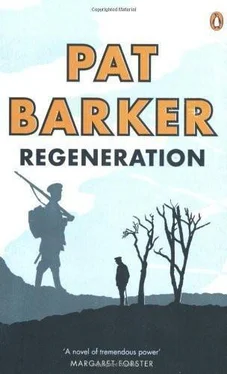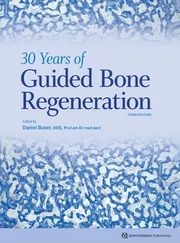None of this prevented him from watching Sassoon’s continued poring over the menu with affection as well as amusement.
Sassoon looked up. ‘Am I taking too long?’
‘No, take as long as you like.’
‘It’s almost pre-war standard, isn’t it?’
‘I hope you’re not going to protest?’
‘No. You can rely on me to be inconsistent.’
Rivers was not afraid of Sassoon’s noticing any change in him . Siegfried’s introversion was remarkable, even by the normal standards of unhappy young men. His love for his men cut through that self-absorption, but Rivers sometimes wondered whether anything else did. And yet he had so many good qualities. It was rare to find a man in whom courage was the dominating characteristic, as malice or laziness or greed might be the ruling characteristic of lesser men.
The dining room was almost empty. They were shown to a table for two by a window that overlooked the club’s small, walled garden. A scent of roses, drenched from the morning’s rain, drifted in through the open window.
The waiter was very young, sixteen perhaps. Red hair, big freckles splodged over a pale skin, knobbly, pink-knuckled hand clasping the carving knife. With his other hand he lifted the domed lid from the platter to reveal a joint of very red beef. Sassoon smiled. ‘That looks nice.’
The boy carved three slices. As he bent to get the warmed plate from the shelf below, it was possible to see the nape of his neck, defenceless under the stiff collar.
‘Is that all right, sir?’
‘One more, perhaps?’
The boy was looking at Sassoon with undisguised hero-worship. Not surprisingly, Rivers thought. He’s dragging out the weeks in this dreary job waiting for his turn to go out. At least they no longer allowed boys of his age to lie their way in. He noticed Sassoon smiling to himself.
‘What’s amusing you?’
‘I was thinking about Campbell. Not our Campbell. A much less engaging man, and… er… allegedly sane. He gave lectures — still does, I believe — on “The Spirit of the Bayonet”. You know, “Stick him in the kidneys, it’ll go in like a hot knife through butter.” “What’s the good of six inches of steel sticking out the back of a man’s neck? Three inches’ll do him. When he croaks, go and find another.” And so on. And you know, the men sit there laughing and cheering and making obscene gestures. They hate it. ’ He smiled. ‘I was reminded because that boy was doing so well with the carving knife.’
‘Yes, I noticed.’
‘Very much the sort of man you’d pick as your servant.’
Rivers said mischievously, ‘Not bad-looking either.’
‘I’m afraid that has to take second place. You look for skill with the bayonet first because he’s always on your left in the attack.’
They ate in silence for a while. Rivers said, ‘Have you heard from the friend you were going to write to about Gordon?’
‘Yes. It’s true apparently, he did die instantly. His father said he had, but they don’t always tell parents the truth. I’ve written too many letters like that myself.’
‘It must be some consolation to know he didn’t suffer.’
Sassoon’s expression hardened. ‘I was glad to have it confirmed.’ An awkward silence. ‘I had some more bad news this morning. Do you remember me talking to you about Julian Dadd? Shot in the throat, two brothers killed? Well, his mental state has worsened apparently. He’s in a — what I suppose I ought to call a mental hospital. Given present company. The awful thing is he’s got some crazy idea he didn’t do well enough. Nobody else thinks so, but apparently there’s no arguing with him. He was one of my heroes, you know. I remember looking at him one evening. We’d just come in from inspecting the men’s billets — which were lousy as usual, and — he cared. He really cared. And I looked at him and I thought, I want to be like you. ’ He laughed, mocking his hero-worship, but not disowning it. ‘Anyway, I suppose I’ve succeeded, haven’t I? Since we’re both in the loony-bin.’
The provocation was deliberate. When Rivers didn’t rise to it, Sassoon said, ‘It makes it quite difficult to go on, you know. When things like this keep happening to people you know and and… love. To go on with the protest, I mean.’
Silence.
Sassoon leant forward. ‘ Wake up , Rivers. I thought you’d pounce on that.’
‘Did you?’
A pause. ‘No, I suppose not.’
Rivers dragged his hand down across his eyes. ‘I don’t feel much like pouncing.’
Rivers left the club an hour later. He’d left Siegfried with Ralph Sampson, the Astronomer Royal of Scotland, whom they’d bumped into after lunch. At first Sassoon had been almost too overawed to speak, but Sampson had soon put paid to that. Rivers had left him chatting away quite happily. Lunch itself had been rather depressing. At one point Siegfried had said, ‘I’m beginning to feel used up.’ You could understand it. He’d suffered repeated bereavements in the last two years, as first one contemporary then another died. In some ways the experience of these young men paralleled the experience of the very old. They looked back on intense memories and felt lonely because there was nobody left alive who’d been there. That habit of Siegfried’s of looking back, the inability to envisage any kind of future, seemed to be getting worse.
Not an easy case, Rivers thought. Not in the usual sense a case at all. He had no idea what the outcome would be, though he thought he could get Siegfried to give in. His love for his men. The need he had to prove his courage. By any rational standard, he’d already proved it, over and over again, but then the need wasn’t altogether rational. Given the strength of that need, it was amazing he’d managed to tolerate being cooped up with ‘wash-outs’ and ‘degenerates’ even as long as he had. Putting those forces together and getting him back to France was a task of approximately the same order of difficulty as flicking a stag beetle on to its back. The trouble was Rivers respected Sassoon too much to manipulate him. He had to be convinced that going back was the right thing to do.
At the foot of the Craiglockhart drive, Rivers saw Willard and Mrs Willard. For some extraordinary reason Willard had got his wife to push him as far as the gates, despite the downward slope which he must have seen would make the return journey difficult. Now they were marooned.
Rivers greeted Willard, waited for an introduction to his wife, and, when it failed to come, introduced himself. Mrs Willard was extremely young, attractive in the small-breasted, slim-hipped way of modern girls. As they chatted about the deceptive nature of slopes and the awkwardness of wheelchairs, Rivers became aware of Willard’s hands clenched on the arms of the chair. He felt Willard’s fury at being stranded like this, impotent. Good. The more furious he was the better.
Rivers said to Mrs Willard, ‘Here, I’ll give you a hand.’
With two of them pushing they made steady progress, though there was one nasty moment near the top, when they struck a muddy patch. But then the wheels bit, and they reached level ground at a cracking pace.
‘There you are,’ Mrs Willard said, bending over her husband, breathless and laughing. ‘Made it.’
Willard’s face would have curdled milk.
‘Why don’t you come in and have a cup of tea?’ Rivers suggested.
Mrs Willard looked to her husband for guidance. When none came, she said, ‘Yes, that would be lovely.’
‘My door’s on the left as you go in. I’ll just go ahead and arrange things. You’ll be all right now?’
Читать дальше












